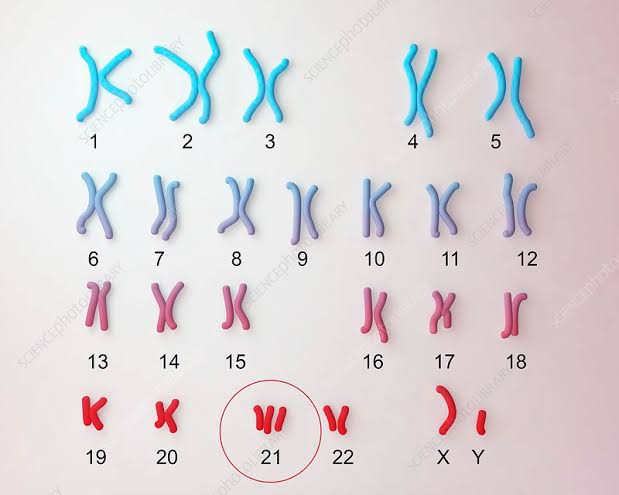By Duma Edward-Dibiana
World Down Syndrome Day is celebrated across the globe on March 21, every year. It is a global awareness day which has been officially observed by the United Nations since 2012.
Every year people with Down syndrome, families, advocates, caregivers and friends, create awareness and bring to the fore burning issues concerning people with Down syndrome. And over the years,their voices have increasingly grown louder, as many people are becoming more educated about these special people, their peculiarities and how they can contribute in making things easier for them in the society.
WHY MARCH 21St?:
The 21st day of March (3/21) was deliberately selected to signify the uniqueness of the triplication (trisomy) of the 21st chromosome which causes Down syndrome.
The Theme of this year, 2021 World Down Syndrome Day is : CONNECT.
If we don’t create the awareness, it will be difficult to connect. It will be almost impossible to appreciate,come to terms with, let alone connect with what you don’t understand or have prior knowledge of!
What then is Down syndrome?
For those who do not previously know what Down syndrome is, it is one of the most common causes of learning difficulties, referred to as intellectual disability, in the world and it is caused by chromosomal abnormality.
Science tells us that every human being is born with 46 chromosomes. It is usually 23 from the father and 23 from the mother and they come in pairs. But for people with Down syndrome also known as ‘trisomy 21’, they have three copies of the 21st chromosome instead of the usual two copies. So, instead of the normal 46,it becomes 47, which is an anomaly.
The result of this extra chromosomal material is a mild to severe intellectual disability and possibly some medical conditions.
Every person born with Down syndrome is different and has a different mix and severity of the conditions typically associated with the syndrome. Some of these includes but not limited to:
* Low muscle tone
* Congenital heart defects (holes in the heart)
* Sleep apnea
* Hearing loss etc
* Appearance wise, the nasal bridge might be flat
* The mouth might be smaller than normal, possibly with a protruding tongue(this affects their speech)
* Eyes that tend to slant upwards etc

HOW THEN CAN WE COLLECTIVELY AS A PEOPLE CONNECT WITH THESE RARE BREEDS?
It is a virtue of humanity to accept, see and treat other humans the same way we would want others to accept and treat us. To seamlessly connect with people with Down syndrome, we should first appreciate that we are more similar than we are different, in spite of their peculiar circumstances and above mentioned challenges.
So, patience and understanding are key in connecting with them. For instance, because of their speech difficulty, you might have to pay closer attention to understand what a person with Down syndrome is saying during a conversation, as they often have challenges with their communication skills as a result of smaller mouth cavity and elongated tongue as earlier stated.
It is of paramount importance to remember that the difficulty the person has in forming words does not make what they have to say any less interesting or important. This does not mean they can’t have meaningful conversations with others rather, it only means that they have trouble expressing their thought. Most times, finding the right words to convey their thought seem tideous, but with patience and encouragement, they will be able to pass their messages to your understanding. And this gives them some kind of joy of satisfaction, which is often expressed with a bold smile or twinkles in their eyes.
Like others, people with Down syndrome experience a complete range of emotions-happiness,sadness,pride,fear,excitement, boredom,anger etc as they also desire to succeed in all spheres of life. To connect with them therefore, whatever assistance you are rendering should be given respectfully. Make them feel valued.
To connect and make them not to feel left out or marginalized, inclusion in all spheres of life is inevitable. I urge government at all levels and stakeholders to embrace that pattern of education that modifies/ adjusts classroom practices meant for the ‘normal’child to accommodate/benefit the child with Down syndrome!
That education that doesn’t discriminate, but rather makes room for people with Down syndrome!That pattern of education that gives them the opportunity to thrive academically and otherwise!That education that assists these exceptional people to meet their peculiarities and maximize their potentials!THIS TYPE OF EDUCATION IS CALLED INCLUSIVE EDUCATION!
Inclusive Education is the most fertile ground for connection. It brings the much needed enlightenment home because it allows people with Down syndrome to mingle , socialize and showcase their strengths and weaknesses.Their peers see them for who they really are and make efforts to unconditionally accept or reject them, as they would do to other children without these challenges.
Remember we each have our shortcomings and our strengths. So, create room for them to work at their own pace no matter how slow. Give them the opportunity to showcase themselves and prove their worth and watch them break bounds or crumble! whichever way, connect by giving them a chance!.
Finally,having Down syndrome doesn’t define them. It is one part of a much bigger picture. With early guidance from their family,caregivers,support from teachers,therapists,community, religious bodies and of course friends,many people with Down syndrome will learn to live more independent and fulfilling life.
Connect by saying NO TO THE SUBTLE AND /OR OUTRIGHT DISCRIMINATION OF PEOPLE WITH DOWN SYNDROME!SILENCE MEANS COMPLIANCE!TAKE A STAND!CONNECT!
* Mrs Edward-Dibiana,a special educator, caregiver and Special Needs Children rights advocate, works with the learning support unit of Premier International School, Abuja.